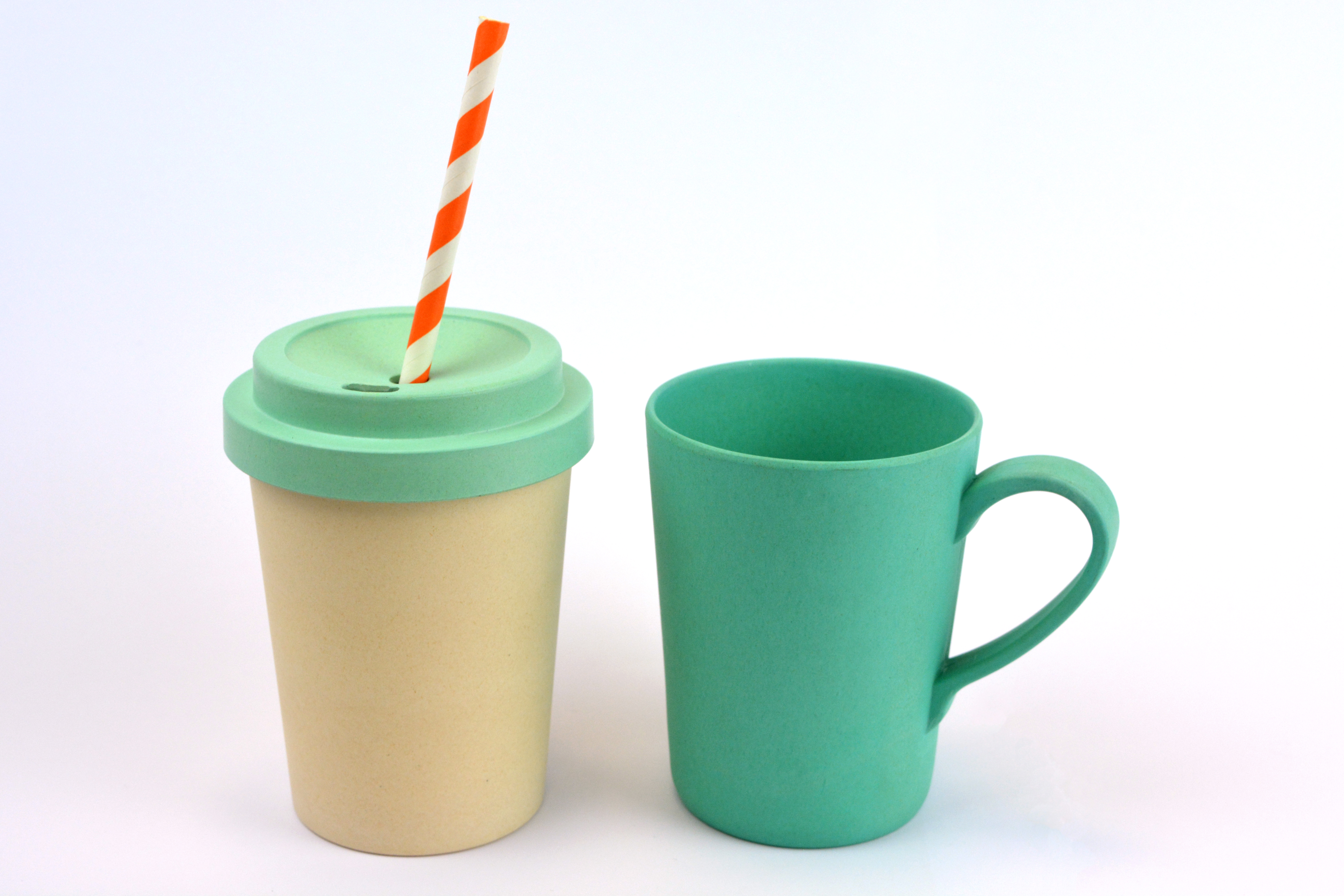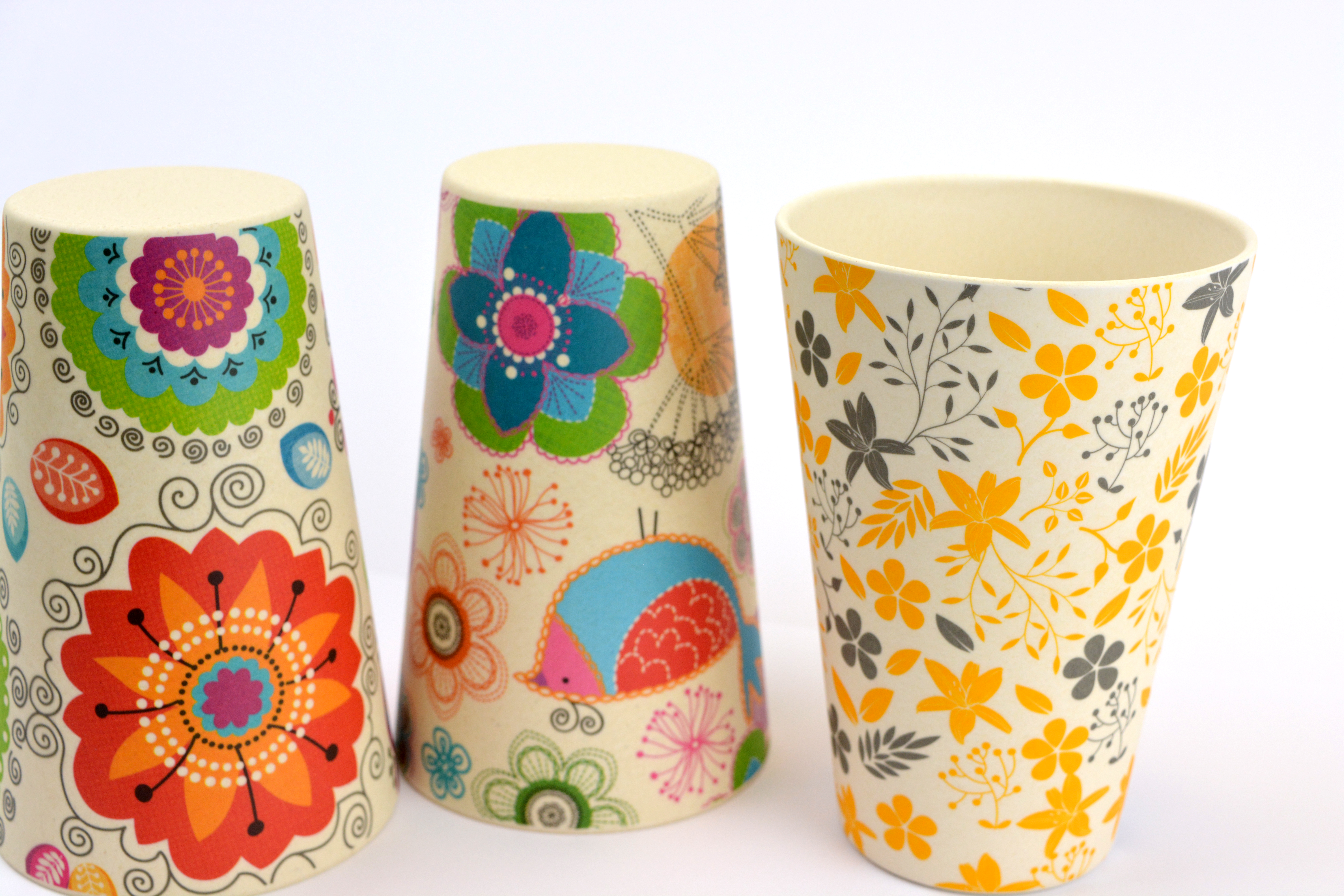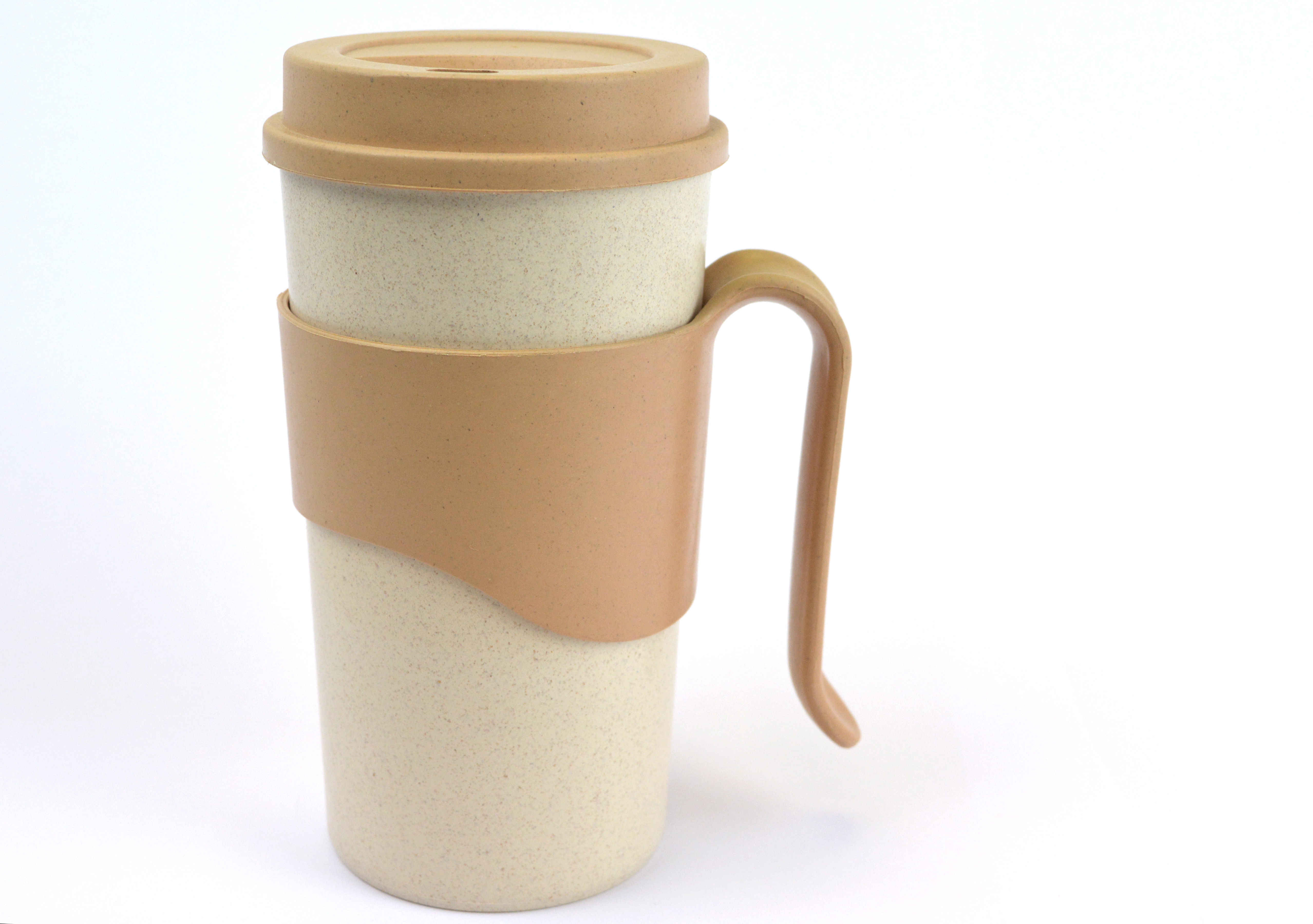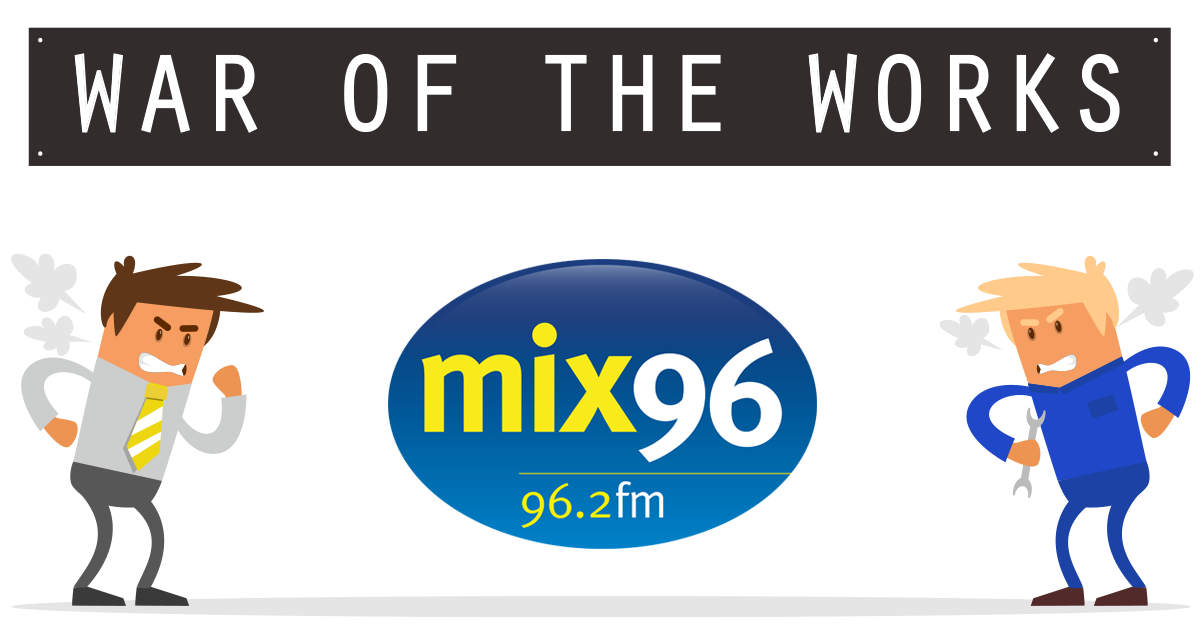
Re-usable cups are great! But is yours sustainable?
Disposable cups have been an issue for many years. Currently 2.5 billion disposable cups are still thrown away each year in the UK. Re-usable cups have had a significant rise in sales over the years offering a variety of options. Glitter? Floral Prints? Or even your favorite phrase. The reusable cup has become an extension of our personalities when standing in our local coffee shop. This does however mean just like fashion, people change their cups seasonally and therefore get thrown away. Unfortunately most of the time into landfill.
The movement to reusable cups was brilliant but unfortunately many of these cups are made from PP (polypropylene). Although PP is recyclable, there are not many facilities, mainly due to costs, geared up to recycle PP plastics.
Luckily there are many new composite materials available that can substitute these commercial plastics but many do not provide the convenience or material properties desired. One composite on the rise for its sustainability and biodegradable properties is a Bamboo Fibre Composite. This composite is manufactured by mixing bamboo fibres into a polymer matrix, resin or glue that results in a lightweight biodegradable plastic alternative. Bamboo is one of the fastest growing plants in the world so it being used in this way it a no brainer!
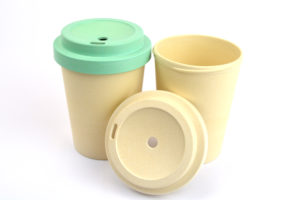
‘Bamboo Fibre Composite’
Why switch to Bamboo Fibre Composite?
- It isn’t an expensive material
- It is 60-70% biodegradable
- You can print decals straight onto it
- For new products, the mould costs are much lower than if you used PLA (Polylactide)
- Dishwasher Safe
Like most things though there are disadvantages, such as it can only be injection moulded.
The Evolution of Straws
The movement for more sustainable products doesn’t just stop at reusable cups. Straws are another major issue across the globe. Many large companies are actually banning the use of plastic PP (polypropylene) straws and are changing to alternatives. Goldman Sachs is one of the companies joining the list of companies to ban plastic straws from its US offices. Many restaurant chains have vowed to ban plastic straws and change to more sustainable materials.
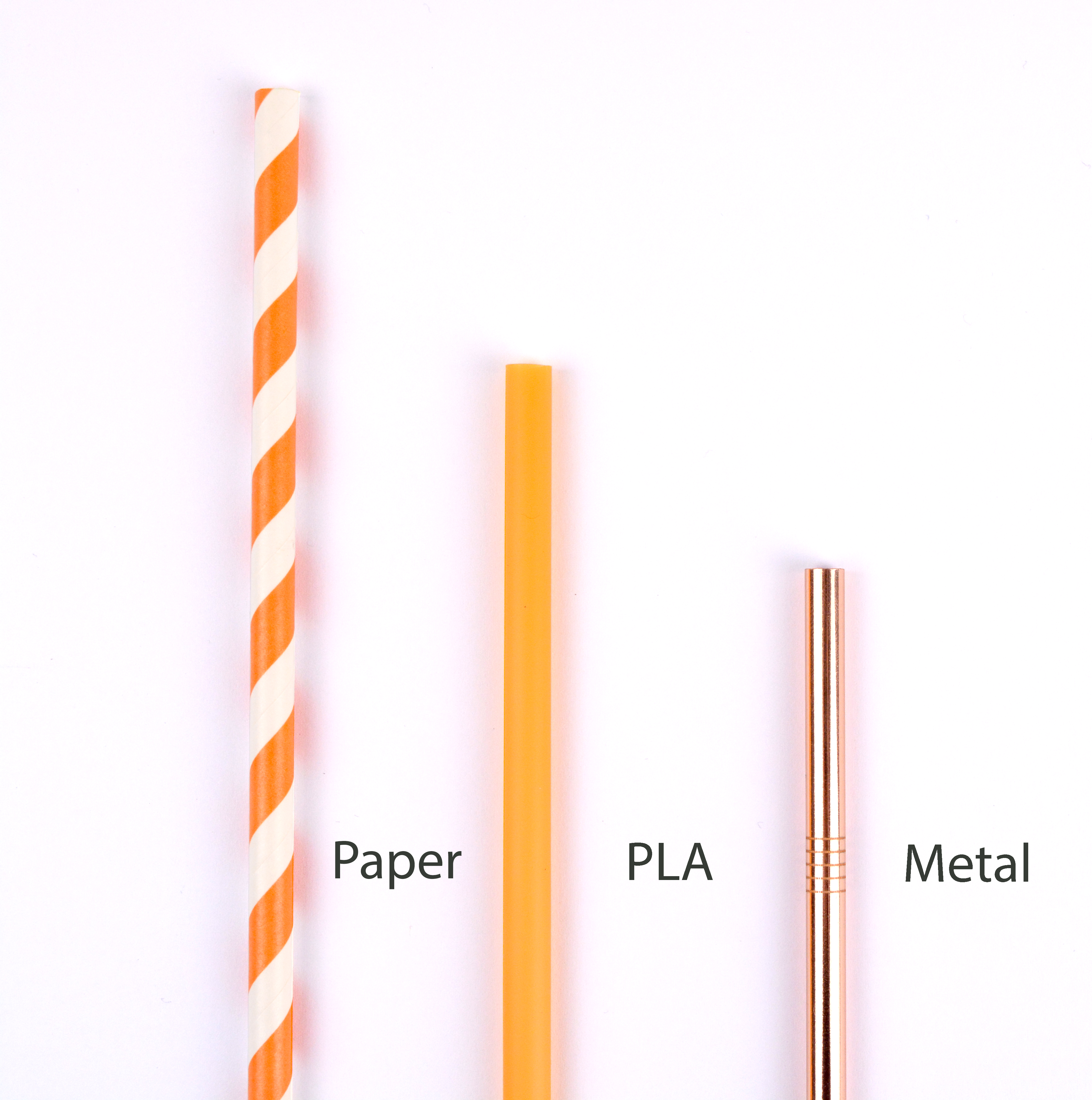
Available Alternative Straws
The demand for paper straws has increased in the last few months, mainly because of their versatility of designs available. These types of straws are ideal in fast ‘single use’ environments such as bars and clubs where some consumers insist on a new straw for every drink. Although paper straws are not a consumers first choice because the thought of the straw becoming ‘soggy’ and it ‘falling apart’ does give them a social stigma.
PLA (Polylactide) straws are also and alternative due to them being a biodegradable polymer but these however are slightly more expensive. The switch from using normal PP straws to PLA however could reduce the cost in the future due to demand.
Metal straws are also growing in popularity. You can now purchase a variety of metal straws in different diameters and finish. These seem to be very popular in on-trade events where the team can clean the straws for the next client (they are dishwasher safe) and it also reduces waste for the event. Metal straws are also available in the form of a collapsible straw that can be stored in a small pouch and attached to your keys. These straws can be used for a lifetime and are conveniently travel size.
The switch to these new alternatives can make such a difference and help the environment one ‘straw’ at a time.

